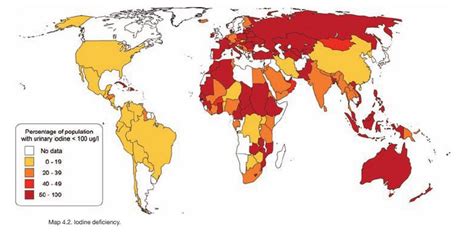Aside from protein, what single micronutrient deficiency most commonly hinders men’s recovery and energy levels after intense weightlifting sessions?

When it comes to bouncing back from a grueling weightlifting session, protein often steals the spotlight, and rightly so. It’s the building block for muscle repair and growth. However, many men diligently consume their protein, only to find themselves still struggling with persistent fatigue, poor recovery, and a general lack of energy. This often points to an overlooked culprit: a single micronutrient deficiency that plays a pivotal role in countless physiological processes crucial for post-workout restoration.

The Unsung Hero: Magnesium
While various micronutrients are vital, the deficiency that most commonly and profoundly impacts men’s recovery and energy levels after intense weightlifting, aside from protein, is Magnesium. This essential mineral is a cofactor in over 300 enzymatic reactions in the body, many of which are directly involved in energy production, muscle function, and nerve transmission.
Why Magnesium Matters for Lifters
- ATP Production: Magnesium is absolutely critical for the synthesis of adenosine triphosphate (ATP), the primary energy currency of your cells. Without sufficient magnesium, your body struggles to produce energy efficiently, leading to reduced stamina during workouts and prolonged fatigue afterward.
- Muscle Function and Recovery: It plays a key role in muscle contraction and relaxation. A deficiency can lead to muscle cramps, spasms, weakness, and an inability for muscles to properly relax after intense exertion, thus hindering recovery. It also helps regulate calcium levels, which are essential for muscle health.
- Nerve Function and Sleep: Magnesium supports healthy nerve function and has a calming effect on the nervous system. Adequate levels are crucial for quality sleep, which is perhaps the most underrated aspect of recovery. Poor sleep directly translates to lower energy levels and impaired physical repair.
- Inflammation Regulation: Intense exercise induces a degree of inflammation. Magnesium helps regulate inflammatory responses, potentially aiding in quicker recovery and reducing muscle soreness.

Recognizing the Signs of Magnesium Deficiency
Because magnesium is involved in so many bodily functions, its deficiency can manifest in a variety of ways. For men who lift, common signs might include:
- Persistent fatigue and low energy, even after rest.
- Muscle cramps, twitches, or spasms.
- Poor sleep quality, difficulty falling asleep, or restless leg syndrome.
- General weakness or reduced exercise performance.
- Increased irritability or anxiety.
- Headaches or migraines.
It’s important to note that blood tests for magnesium often only measure serum magnesium, which may not accurately reflect cellular magnesium levels, making deficiency harder to diagnose.

Boosting Your Magnesium Intake
If you suspect a magnesium deficiency is hindering your progress, there are several ways to increase your intake:
Dietary Sources
Prioritizing magnesium-rich foods is the best first step. Excellent sources include:
- Leafy Green Vegetables: Spinach, kale, Swiss chard.
- Nuts and Seeds: Almonds, cashews, pumpkin seeds, chia seeds.
- Legumes: Black beans, lentils, chickpeas.
- Whole Grains: Brown rice, oats, whole wheat.
- Avocado: A good source of healthy fats and magnesium.
- Dark Chocolate: A delicious way to get some magnesium, in moderation.
- Fatty Fish: Salmon, mackerel.

Supplementation Considerations
For those with diagnosed deficiencies or consistently low dietary intake, supplementation might be beneficial. Common forms include:
- Magnesium Citrate: Highly absorbable, often used for bowel regularity.
- Magnesium Glycinate: Known for high bioavailability and gentleness on the stomach, often preferred for sleep and relaxation.
- Magnesium Malate: May be beneficial for energy production and muscle soreness.
- Magnesium L-Threonate: Thought to be particularly good for cognitive function.
Always consult with a healthcare professional or a registered dietitian before starting any new supplement regimen, especially to determine the correct dosage and form suitable for your individual needs.
Conclusion: Fueling Optimal Performance
While protein remains paramount for muscle repair, overlooking magnesium can leave even the most dedicated weightlifter feeling drained and under-recovered. Addressing a potential magnesium deficiency can unlock significant improvements in energy levels, muscle recovery, sleep quality, and overall athletic performance. By focusing on a balanced diet rich in this vital mineral or considering targeted supplementation, men can ensure their bodies have the essential tools to not just endure, but thrive after intense weightlifting sessions.








